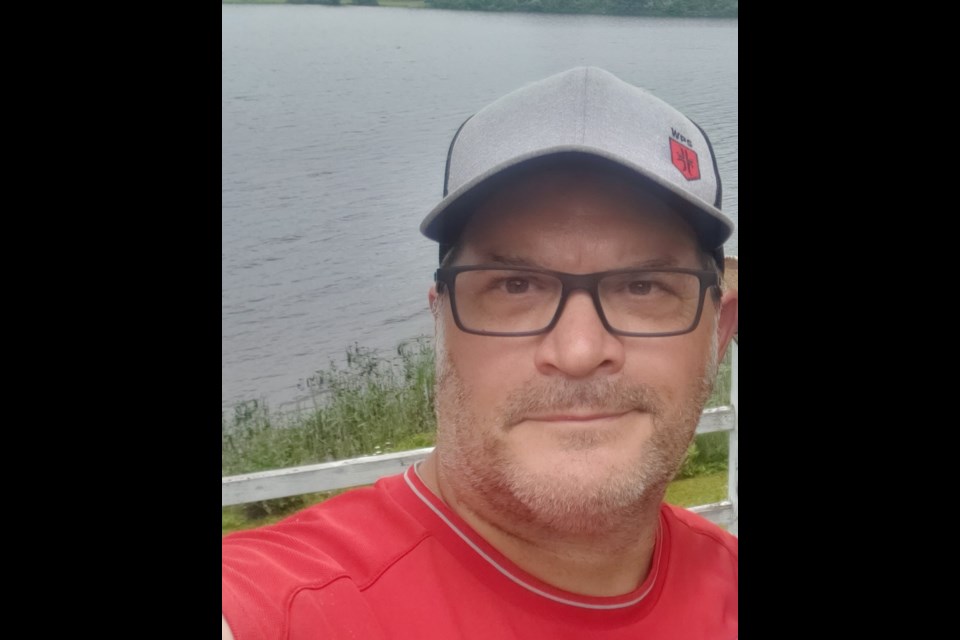Retiree and Nipissing-Timiskaming People's Party candidate Greg Galante says he's hoping to get elected by speaking to issues the other candidates want to avoid, principally immigration and vaccine passports.
The 55-year-old candidate was born and raised in Hamilton, and spent six years in the Canadian army as an infantry section commander. After a short career in the financial sector he started working at the Toronto Fire Department in 1991 and retired last December as a captain in the Operations Division
"I've worked at the sharp end of responsive care delivery through three pandemics," he told BayToday.
His roots in the riding go back to when he and his dad bought a camp on Lake Talon in 2000 and Galante moved up full time in 2014
"I knew I wanted to live up here. We work 24-hour shifts in Toronto so I was able to make it work, living here full-time"
His dad passed away but mom and sister are close by. He also has a 15 year old son that lives with his mother in Brantford, but spends a lot of the summer at the lake.
Galante Is not vaccinated and adds, he does not plan to get the shot.
"I've had COVID in December 2019, before they labelled it. I never get sick, but I got sick. I recovered and went back to work "
He says he's had an antibody test that confirmed he caught COVID.
"I've had it. I'm not in a risk category so I've made an informed decision not to get vaccinated," he explained.
What about other people?
"I believe that's a personal choice. If they are in a risk category they should make a decision for themselves. There is no long-term safety data. We're not against vaccines, but we're not for them. People need to make an informed choice. People are being threatened with their jobs, that's insanity."
But the main issue that Galante is hanging his hat on is vaccine passports.
"A PPC government will not mandate any national vaccine passport and we will not fund provincial governments that want to institute a vaccine passport,"he says.
"Number one, they're unlawfull. It's against the Constitution and Charter of Rights and Freedoms and it violates three privacy laws and sections of the Canada Health Act with respect to testing and inoculation being forced or mandated."
He emphasizes the PPC is not anti-vaccine. "If a person feels better getting that after an informed discussion with their care provider, go ahead."
The vaccine passport is a different matter he says, calling it "already practically useless."
"We've been told that even if you've been vaccinated you can still carry the virus and transmit the virus, so you're going to have vaccinated people, because they have their QR code on their phone being able to enter a facility with other people, transmitting the virus, then leaving. But a healthy non-vaccinated person is being excluded from the same place. It doesn't make any sense."
Another concern is a Justin Trudeau promise.
"He says if reelected, he'll committ a billion dollars to instituting a national vaccine passport. There is no way a federal government is going to spend a billion dollars for something that is temporary. 'We're going to give you a code on your phone.' That's scary. Do Canadians want to live in a world like that?"
Galante says that one of the questions he gets asked most is about affordable housing, which he ties to immigration.
"We have a lot of offshore investors, particularly Chinese money coming into the country, and they're not just buying a home, they are going into a development and buying whole blocks and outbidding everybody, so that's driving prices up."
The PPC feels the biggest pressure on housing is our immigration level.
"We're over 300,000 new immigrants a year, not including refugees, and Mr. Trudeau would like to increase that to over 400,000 a year. In two years that's more than the population of New Brunswick. It's effectively one per cent of our population year over year. A country cannot sustain that. The housing industry cannot keep up with that many people coming into the country every year."
Galante says it also puts too much pressure on human infrastructure.
"Currently, only 28 per cent of the immigrants are economic immigrants. The other 72 per cent are dependants. Those dependants place demands and stress on our human infrastructure, social services, health network, mental health network, pharmaceutical businesses, social work, policing, ambulance. All those systems get past their capacity when we have that many people coming in."
He says over 60 per cent of the immigrants go to three cities, Toronto, Montreal, and Vancouver, making pressure even worse in those areas.
"The PPC wants to get that number down to between 100 and 150 thousand a year. We want to flip that 28 to 72 ratio, and get that as quickly as possible to 50-50. Then get it the other way around so we get 3/4 of the immigrants being economic immigrants with skills we need so they can plug right into the economy in a well-paying job and support their family without adding to the strain on our human infrastructure.'"
The election is September 20.


